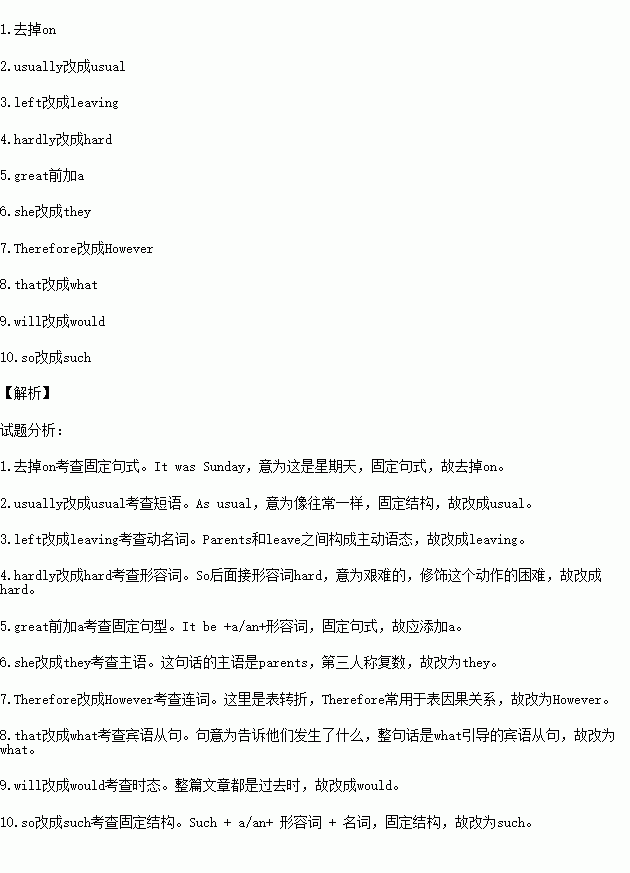题目内容
短文改错
假定英语课上老师要求同桌之间交换修改作文,请你修改你同桌写的以下作文。文中共有10处语言错误,每句中最多有两处。每处错误仅涉及一个单词的增加、删除或修改。
增加: 在缺词处加一个漏字符号(∧),并在其下面写出该加的词。
删除: 把多余的词用斜线( \ )划掉。
修改: 在错的词下划一横线,并在该词下面写出修改后的词。
注意: 1. 每处错误及其修改均仅限一词;
2. 只允许修改10处,多者(从第11处起)不计分。
It was on Sunday so I didn’t have to go to school as usually. My parents went to the countryside to see my grandparents, left me alone. After finishing my homework, I began to play football at home. All of a sudden, I kicked the ball so hardly that it flew right onto a vase and broke it. It was great favorite of my mother’s. I decided to tell my parents it was the fault of the cat for fear that she should punish me. Therefore, when they got home, I hesitated for a moment and told them that truly happened. Instead of punishing me, they just hoped that I will never make so a foolish mistake again.


